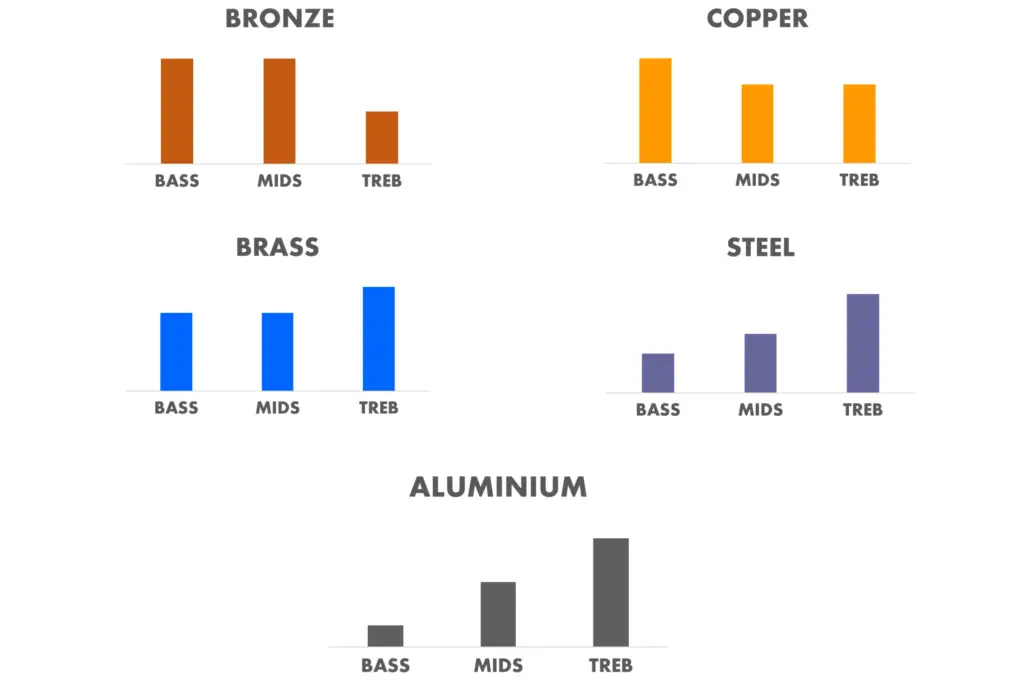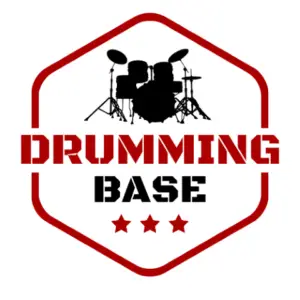There are many different types of drums available from loads of different brands, but do they actually sound different from one another? Here’s the quick answer…
Individual drums sound different from one another primarily due to variations in the depth, diameter, head and shell type. Even the same type of drum produced by two different brands will not sound exactly the same due to slight differences in the construction.

Drum Size
The size of a drum is one of the most significant factors that influences its sound. Size can be broken down into two aspects:
- Diameter
- Depth
The larger the diameter of a drum, the lower the pitch will be which means it will sound warmer and more mellow with more bass response. Drums with a smaller diameter have a higher pitch which makes then sound brighter and sharper so cuts through the mix more.
The depth of a drum affects the volume, resonance and attack. Drums with a larger depth have more air inside them so are capable of producing a sound with a higher volume. Deeper drums also sound more resonant and have more sustain. Shallow drums on the other hand, have a faster attack so sound more direct.
Different drums have different average sizes which affects their tone. A bass drum is deeper and wider than a snare drum, hence sounds louder and more mellow.
| Type of Drum | Average Diameter | Average Depth |
| Rack Tom | 8”-12” | 6”-10” |
| Floor Tom | 14”-16” | 11”-14” |
| Snare | 10”-14” | 4”-7” |
| Bass Drum | 18”-22” | 14”-18” |
Each type of drum can also vary in depth and diameter slightly. For example, a bass drum with a smaller diameter will sound brighter than a bass drum with a larger diameter. If the depth is greater, it will also sound louder and more resonant, but have a slower attack.
Check out this YouTube video where you can listen to the differences.
Drum Shell
The drum shell can vary in material and thickness, which again causes one drum to sound different from another.
For example, snare drums can either be made from wood or metal. Wood snares sound warmer and more resonant compared to metal snares which sound brighter, sharper and more direct. Even different types of wood and metal sound different from each other.
Check out this article comparing wood and metal snares to learn more.
Thinner drum shells sound warmer and more resonant, but thicker shells sound louder.


Head Type
There are two kinds of heads on a drum: the batter head (the one you hit) and the resonant head (the one on the opposite side).
Drum heads vary in the number of layers they have.
- Single ply drums heads have a higher pitch and more sustain
- 2-ply drum heads have more attack and produce a deeper and controlled sound
The overall thickness of the drum head also affects the tone. Thicker drum heads have more sustain and depth, whereas thinner drum heads sound brighter.
Do Drum Brands Sound Different from Each Other?
If two drums are produced by the same manufacturer and have the same head type/thickness, shell thickness and material, and are the same size then it can be difficult to hear a difference between them.
However, the way they are constructed does have an impact on the sound, and this varies between manufacturers.
For example, if more glue is used to assemble the shell, the drum will sound more “choked”. The angle of the bearing edges also makes a difference. A sharper angle will produce a brighter sound compared to a flatter angle which will sound softer.
Even things like the number of lugs on a snare drum will influence the tone. Check out this article comparing 6 vs 8 vs 10 lug snares to learn more.
Another aspect that varies between manufacturers is the hardware which has a significant effect on the tone when all the drums are assembled together. This is why kits from different manufacturers often sound different even if the individual drum specifications are similar.
For example, lighter hardware increases sustain, whereas heavier hardware makes the drum sound brighter. The types of hoops used, and how much hardware is touching the drum will also make a difference too.
Here are some more articles you might find useful:

